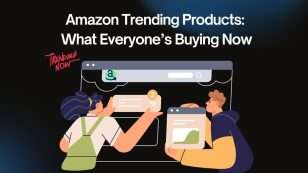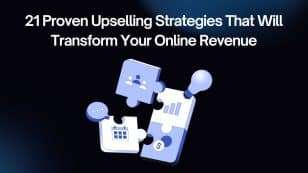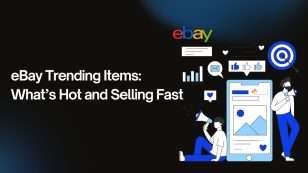As an online seller, few things are more stressful than logging into your PayPal account and discovering a sudden limitation or a mysterious fund hold. PayPal is a trusted payment gateway used by millions of merchants worldwide, but its risk management system can sometimes catch sellers off guard. In this guide, we’ll explain why PayPal limits accounts, why it holds your money, and how you can resolve these issues quickly — and prevent them from happening again.
Why Does PayPal Limit Accounts?
PayPal may place limitations on your account for several reasons, all of which are part of its effort to reduce fraud, comply with regulations, and maintain buyer and seller safety. Here are the most common causes:
1. Suspicious or Unusual Account Activity
If you suddenly receive a large payment, log in from multiple devices or countries, or show unusual transaction patterns, PayPal might view it as suspicious behavior. This especially affects new sellers or those with little transaction history.
Solution: Log in to the Resolution Center, complete identity verification, and provide supporting documents like invoices or proof of delivery. The more transparent you are, the quicker the review process.
2. Unverified or Incomplete Account Setup
PayPal may limit your account until you’ve verified key information. This includes your email, bank account, credit card, and sometimes even your business documentation.
Solution: Complete all verification steps in your profile. Add and verify your bank account, link a credit card, and submit any requested identification documents.
3. Excessive Chargebacks or Refund Requests
A high number of disputes, chargebacks, or refunds signals that customers are unhappy or feel misled — which increases risk from PayPal’s perspective.
Solution: Be honest in your product descriptions, ensure fast and traceable shipping, and respond quickly to customer inquiries. Having a strong customer support system reduces disputes.
4. Selling Restricted or High-Risk Products
If you’re selling items that fall under PayPal’s restricted or prohibited categories (e.g., digital downloads, adult content, high-ticket electronics), your account may be flagged or limited.
Solution: Review PayPal’s Acceptable Use Policy. Remove any restricted products from your store, and offer documentation for legitimate products.
5. Linked to Previously Limited Accounts
If your PayPal account shares information (IP, device, phone number, etc.) with a previously suspended account, PayPal might limit your current one by association.
Solution: If it’s a mistake, contact PayPal directly with evidence showing you are not related to the other account. Create separation with different devices, IPs, and business information.
Why Does PayPal Hold Funds?
Fund holds are PayPal’s way of ensuring there’s no risk before releasing money to the seller. This is common among new or high-risk sellers, and typically lasts up to 21 days. Here’s why PayPal may hold your money:
You’re a New Seller or Store
New PayPal accounts are considered high-risk because there’s no established transaction history. A temporary hold is placed to build trust.
Solution: Complete several successful transactions, deliver products on time, and request buyers to confirm delivery.
Unusual Sales Volume or Sudden Growth
If your sales jump unexpectedly, PayPal might hold funds to verify that your business can fulfill orders.
Solution: Provide shipping confirmations, supplier invoices, and business proof to show the increase is legitimate.
High-Risk Product Categories
Certain items (like digital products, dropshipping goods, or services) are more prone to disputes, so PayPal may hold funds until customer satisfaction is confirmed.
Solution: Always provide tracking information, or in the case of digital goods, screenshots or proof of delivery.
No Tracking Number or Shipping Confirmation
When you don’t upload shipping information, PayPal assumes greater risk of disputes or scams.
Solution: Use reputable shipping carriers and upload tracking as soon as possible. Mark the item as shipped.
Negative Feedback or Buyer Disputes
Too many refunds or low ratings signal a problem in your store. PayPal will hold your funds to protect buyers.
Solution: Improve product quality, shipping time, and communication. Prevent disputes before they escalate.
How to Release PayPal Funds Faster
Want to speed up the process? Here are steps to help you unlock funds quicker:
- Add tracking information and mark the order as shipped.
- Ask buyers to confirm receipt of the order in their PayPal account.
- Use PayPal-approved shipping carriers.
- Keep your dispute rate under 1%.
- Respond to Resolution Center requests immediately and thoroughly.
If you follow these steps and maintain a good seller record, PayPal may release funds within 1–3 days of confirmed delivery, or sooner in some cases.
Pro Tips to Avoid Limitations and Holds in the Future
- Always verify your account and keep your business details up to date.
- Set realistic delivery times and consistently meet them.
- Use tracking for every order, even for low-cost items.
- Avoid selling high-risk products unless you have a strong reputation.
- Communicate with buyers to prevent misunderstandings.
- Monitor your dispute and refund rate carefully.
Final Thoughts
PayPal is a powerful tool for online sellers, but it comes with strict security protocols. Account limitations and fund holds are not personal attacks — they are risk-control measures designed to protect the platform and its users.
The good news? If you’re transparent, responsible, and follow best practices, most limitations can be removed quickly. Better yet, you’ll build a strong PayPal reputation, which means smoother transactions and faster payments in the future.
FAQs
Q: How long does PayPal hold money for new sellers?
A: Usually up to 21 days, but it may be released sooner if tracking is added and the buyer confirms receipt.
Q: Will PayPal notify me before limiting my account?
A: No. Limitations are applied instantly, and you’ll be asked to provide information via the Resolution Center.
Q: Can I still receive money while my PayPal account is limited?
A: It depends on the type of limitation. In most cases, you can still receive payments but may not be able to withdraw them until issues are resolved.
Q: Is it safe to continue using PayPal after a limitation?
A: Yes. Once resolved, PayPal continues to work normally, and your account may even benefit from increased trust over time.
If you’re an online seller who uses PayPal regularly, take these tips seriously — they could save your business time, stress, and lost revenue. Want help setting up a professional PayPal seller account or need a dispute response template? Let me know!
![]()










